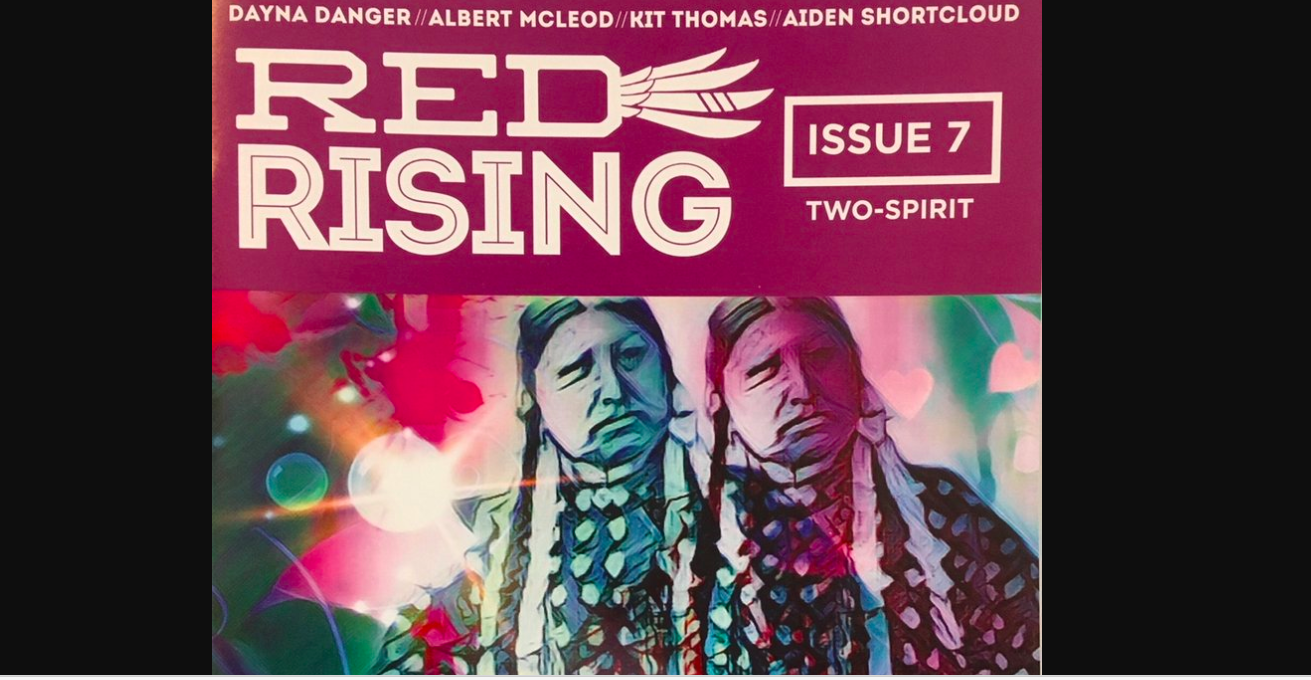This story was supported by the J-Source Patreon campaign.
When it comes to Indigenous storytelling in Canada, a Winnipeg-based, volunteer-run magazine has elevated hundreds of young voices.
Now the folks behind Red Rising Magazine have plans to expand into documentaries and podcasts.
Launched in October 2015, Red Rising began with an inaugural empowerment-themed issue. They’ve released seven magazines so far, spanning themes like land and water, storytelling as resistance and two-spiritedness.
Written and artistic submissions, largely from Indigenous youth, have poured in from across the country and from as far as Russia, Australia and South America.
Their youngest contributor to date was a nine-year-old poet from British Columbia.
“Ultimately (the goal) is to inspire Indigenous youth to write, to get creative and to share their gifts and nurture those gifts,” said Red Rising co-founder Sadie-Phoenix Lavoie.
Each issue also has a prominent featured contributor, with past guests including activist and professor Pam Palmater, acclaimed author Katherena Vermette and artist Dayna Danger.
“We want to provide a platform for Indigenous voices that are marginalized within media and also provide education for non-Indigenous people, in terms of getting the actual, authentic Indigenous perspective,” Lavoie said.
The core members of the collective – eight Indigenous and non-Indigenous volunteers, mostly in their 20s and 30s – had zero publishing experience when they got started. But the like-minded community organizers wanted to see uncensored and positive Indigenous stories in the media.
And so they got to work.
“In terms of (mainstream) media, they always have some type of agenda. They’re only taking the cookie-cutter quotes and whatever, whereas (Red Rising) is giving the person the ability to share whatever it is that they need to get out there,” Lavoie said.
In the wake of Hal Niedzviecki’s controversial spring essay about offering a cultural appropriation prize, Red Rising co-founder Kevin Settee said he sees the magazine’s mandate as more important than ever.
“We’ve been working so hard to get Indigenous voices out there and support and build a platform — a social media platform and a national platform — where people are able to share their stories,” said Settee.
“Then all of a sudden you have this white person come out and say, ‘Hey, you can imagine any kind of writing you want,’” he said. “It’s important for people to understand what cultural appropriation really is: Colonialism.”
In Winnipeg, teachers like Christine M’Lot already see the value of Red Rising and use it as an educational tool in their classrooms.
M’Lot, saw how much her Grade 7 and 8 students enjoyed reading the magazine when she brought it in for free reading periods. The colourful, nearly 50-page spreads were always on loan.
M’Lot joined Red Rising as a contributor in January and helped kick-start its new education initiative.
She created four unit plans (approximately four months’ worth of classes) on Indigenous topics for middle years students. Her next steps include making more lessons for elementary and high schools.
“There are lots of resources out there for teaching about Indigenous topics such as residential schools, like Secret Path (by Gord Downie and Jeff Lemire),” M’Lot said. “But there was nothing that taught teachers about Indigenous pedagogy and how to teach in an Indigenous way. So this is kind of what makes us different.”
(Teachers who want to use the unit plans can reach out via email to info@redrisingmagazine.ca.)
Two years on, Red Rising’s ambitions obviously lie beyond print, though they aren’t done with the magazine world either. Their next issue, focused on language, is scheduled for release in March.
Red Rising is looking to establish a well-rounded multimedia non-profit, hoping to create documentaries and podcasts in the new year.
Operating solely thanks to community donations, the collective would like to fundraise enough to start paying contributors, too, said Lavoie.
Though their workloads can be cumbersome for volunteers, Lavoie called the assembly of Red Rising “the most humbling thing we could do and the most rewarding.”
When they began, the thought process was: “If it doesn’t work then, at least we tried,” she said. “We’re two years in now, so I think we did something right.”
Jessica Botelho-Urbanski (she/her/elle) is a master's student in Digital Innovation in Journalism Studies at Concordia University. She previously worked as a journalist in Winnipeg and now studies journalism as a researcher and podcast producer in Montreal.


